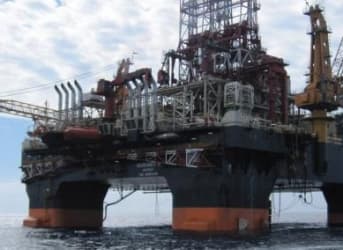Today, an empty flagpole stands outside the Cuban Interests Section in Washington, D.C., but that will change on July 20, when Cuba and the United States open reciprocal embassies in Washington and Havana. Because the Cuban government will continue to occupy its historic embassy building in the Adams Morgan neighborhood, the only obvious change on July 20 will be the new Cuban flag flying outside. And, in what promises to be an historic visit, Secretary of State John Kerry will fly down to Havana himself and raise the American flag over the U.S. embassy, making him the highest ranking U.S. official to visit the island since the 1959 revolution.
But upgrading to embassy status requires a lot more than just raising your flag. To reach an agreement, Obama and Castro had to negotiate in secret for 18 months, using Pope Francis and the Canadian government as intermediaries, all while operating under the legal protection of Swiss Embassies in Washington and Havana. This roundabout communication is what happens when embassies close and communications shut down. Related: Arctic Drilling Future Now Rests On One Well
Opening an embassy means opening a direct line of communication with a host government, even if you don't like what that government has to say. Diplomacy is problem solving, and there are many problems to solve between Cuba and the United States. Press freedom and human rights violations top the list of U.S. concerns. Then there's the incident last year when the Panama Canal Authority intercepted a shipment of Soviet-era jet fighters en route from Havana to Pyongyang. But Cuba is facing these issues and warming up to the United States.
At a time when Venezuelan patronage is untenable, and Russian patronage an afterthought, President Raul Castro needs to fund and populate his capitalist experiment, the Mariel Economic Development Zone, outside Havana. In an astonishing diplomatic twist, Cuba will reconcile with arguably its biggest patron since independence in 1898 – the United States of America. Related: Oil Faces Steep Downside Risk From China’s Stock Market
But Raul Castro would have a much easier time attracting foreign investors to Cuba's Mariel Economic Development Zone if the United States relaxed its economic embargo. And while a complete lifting of the embargo is unlikely in the short term, a first step could be to allow non-Cuban companies with operations at Mariel to sell their products in the United States.
Amending the embargo legislation is still unpopular in Congress, but Obama and Castro can get traction by solving regional problems in Latin America. For example, in 2008 Cuba discovered an estimated 20 billion barrels of crude oil off its western tip in the Gulf of Mexico. The problem is that Mexico has claimed the rights to the same reserves. When it comes down to it, Mexico has a more efficient energy sector and a bigger military, not to mention Cuba owes Mexico more than $100 million. In this tug-of-war, Cuba doesn't have much leverage. Related: Current Oil Price Slump Far From Over
As a result of Mexico's recent opening up to foreign energy investment, U.S. oil companies are about to spend billions of dollars drilling in the southern Gulf of Mexico. This gives the United States a stability interest in the Gulf, and a reason to broker talks between Mexico and Cuba. Finding an equitable solution that avoids the appearance of Mexico and the United States ganging up on Cuba would go a long way towards restoring the United States' reputation in the region.
The United States' reputation across Latin America is ugly right now, not least because of what many Latin Americans consider the United States' draconian embargo against Cuba. While opening an embassy in Havana doesn't lift the embargo today, it might convince Latin American leaders that the United States will act for a stronger hemisphere tomorrow.
By Gonzalo Molina for Oilprice.com
More Top Reads From Oilprice.com:
- This Could Be A Good Moment To Buy Natural Gas Stocks
- Bearish News For Oil Growing By The Day
- Is Saudi Arabia Leaving The U.S. Behind For Russia?


















